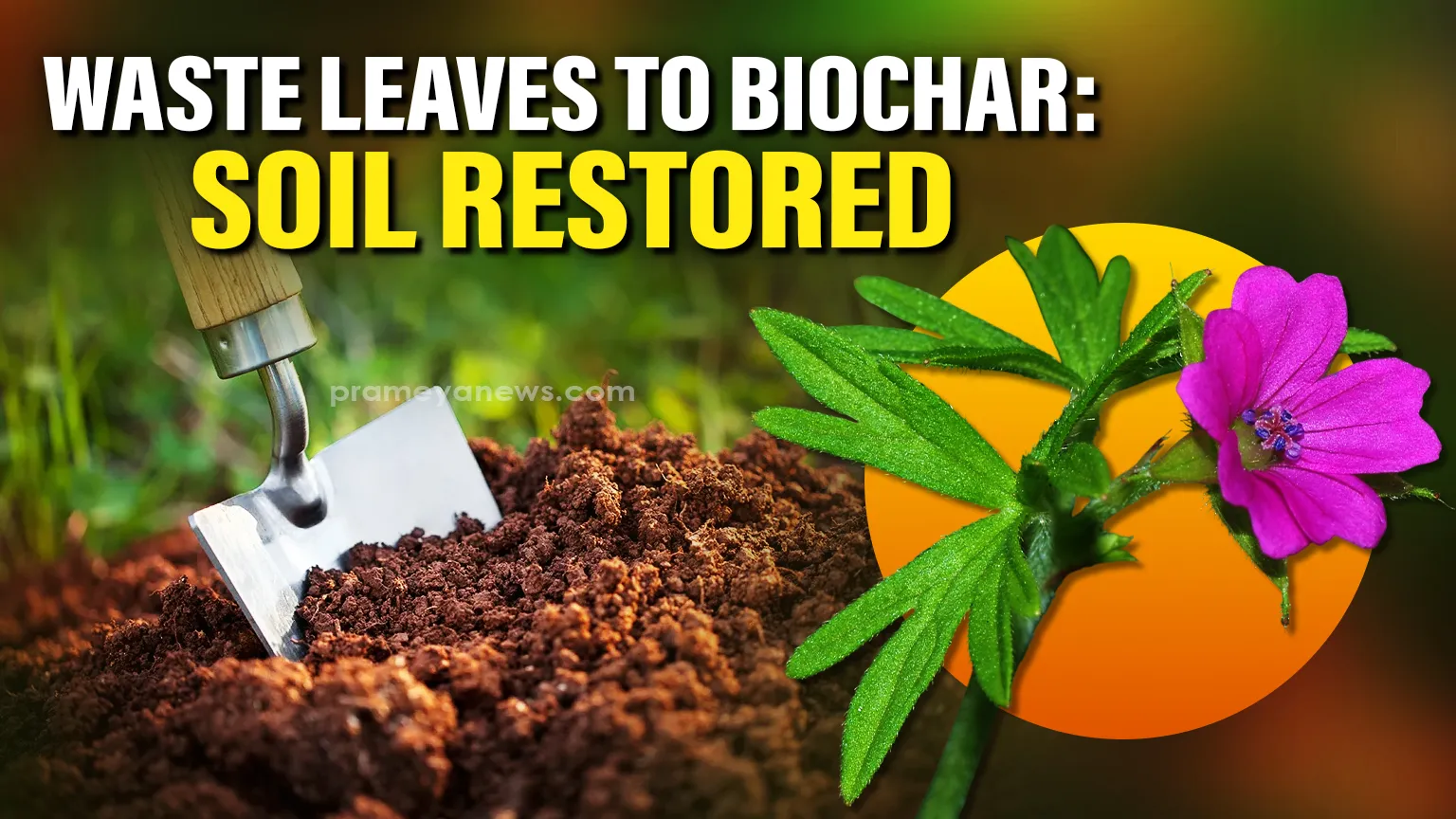

Innovative study turns essential oil waste into soil gold
Turning agricultural byproducts into valuable resources is the latest breakthrough coming out of the University of Hyderabad (UoH). In a significant development for sustainable farming, researchers have successfully discovered a way to transform waste leaves from the essential oil industry into a potent soil enhancer.
The study focuses on Geranium leaves, which are typically discarded after their oil is extracted. Through a clever process, scientists have upcycled this "trash" into Geranium leaves biochar, a carbon-rich material capable of breathing new life into depleted soils.
A Meeting of Minds: Biology Meets Engineering
This innovation serves as a perfect example of what happens when different scientific fields work together. The project was a collaborative effort between the School of Life Sciences (SLS) and the School of Engineering Sciences and Technology (SEST) at UoH. Led jointly by Professor Appa Rao Podile and Professor V.V.S.S. Srikanth, the team combined their knowledge of plant biology and material science to design this eco-friendly process. Their findings were recently featured in the prestigious journal, Biomass and Bioenergy.
Why is this Biochar Special?
The researchers didn't just burn the leaves; they engineered a process to maximize benefits. Detailed analysis of the final product revealed that this specific biochar is packed with nearly 65% carbon. Furthermore, it is rich in essential plant nutrients such as magnesium, calcium, phosphorus, and potassium.
To prove its effectiveness, the team tested the material on Rosemary plants. The results were clear: the biochar significantly improved the plants' vigor and ability to absorb nutrients. The material’s alkaline nature also helps balance soil pH, making it a fantastic amendment for acidic soils.
Economic and Environmental Wins
Beyond the science, the economics of this solution are promising for the agricultural sector. Since Geranium waste is abundant and virtually free, the raw material cost is negligible. Additionally, the production process is energy-efficient, requiring only about 9 kWh per batch. This makes the Geranium leaves biochar significantly cheaper to produce than many commercial alternatives currently on the global market.
Professor Appa Rao Podile highlighted that this method promotes soil restoration while sequestering carbon, helping to fight climate change. Professor Srikanth added that the study offers a scalable model for managing waste from aromatic crops, proving that green technology can directly benefit farmers.
The project was supported by funding from the Department of Biotechnology (DBT) and utilized facilities backed by DST-FIST.